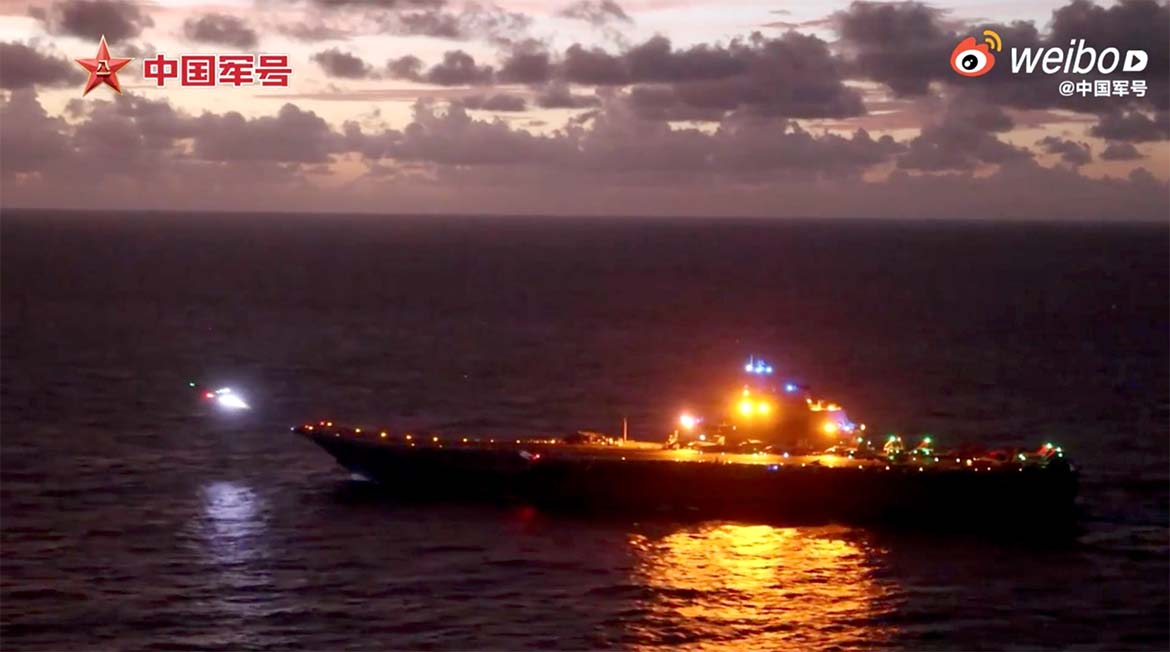Tensions between Taiwan and China have increased as military exercises and sharp political rhetoric dominate the region. In contrast to visions, Taiwan’s leadership reaffirmed its sovereignty while China underscored its commitment to reunification through joint military exercises.
On Taiwan’s National Day, Taiwanese President Lai Ching-te delivered a persistent message, rejecting Beijing’s claim over the island. ”The Republic of China (Taiwan’s official name) — which took root in Taiwan, Penghu, Kinmen, and Matsu — and the People’s Republic of China are not subordinate,” Lai declared.
He emphasized that Taiwan’s people must ”resist annexation” and urged China to focus its influence on promoting global peace, particularly in resolving conflicts like Russia’s invasion of Ukraine.
Beijing’s response was swift. Chinese Foreign Ministry spokeswoman Mao Ning condemned Lai’s speech, accusing him of escalating tensions for political gain.
“Lai’s message exposed his hell-bent position on independence and his sinister intention to escalate tensions in the Taiwan Strait,” she said. Mao warned that such provocations could lead China to take military action.
Joint Sword-2024B
Indeed, just days after Lai’s address, China launched a series of military drills around Taiwan, signaling its intent to project military power. Senior Captain Li Xi, a spokesperson for the People’s Liberation Army (PLA) Eastern Theater Command, announced the commencement of ”Joint Sword-2024B”, a coordinated operation involving China’s army, navy, air force, and rocket force.
The exercises occur in multiple directions around Taiwan and are designed to test the PLA’s combat readiness and joint operational capabilities.
”The drill also serves as a stern warning against the separatist acts of ’Taiwan Independence’ forces,” Li said, emphasizing that the maneuvers are crucial for ”safeguarding state sovereignty and national unity.”
The scale of these exercises is significant, with Taiwan’s Defense Ministry reporting the presence of 25 PLA aircraft, seven naval vessels, and four official ships in areas near the island. Taiwan has deployed its own naval vessels, aircraft, and missile systems to monitor and counteract the PLA’s movements.
These military activities follow an earlier round of exercises in May, during which the PLA similarly tested its capabilities around Taiwan, explicitly framing them as a “punishment for separatist forces.” The ongoing drills reinforce Beijing’s message that any move towards independence, particularly with foreign assistance, will be met with force.
While China has long maintained that peaceful reunification is its preference, its actions indicate that military solutions remain firmly on the table. Beijing upholds the One-China principle, which asserts that Taiwan is an inalienable part of China. Taiwan has been self-governing since 1949 and has consistently pushed back against Beijing, with President Lai reiterating that China “has no right to represent Taiwan.”
With conflicts in Ukraine and the Middle East and concerns about Russia’s ambitions, the possibility of a larger confrontation involving China and Taiwan could have significant geopolitical consequences.
The economist and future prediction specialist Martin Armstrong comments:
”Global tensions seem to increase by the day amid deteriorating economic conditions, with major conflicts now including Ukraine v. Russia, the growing threat of Russia v. NATO, Israel v. Palestine, Israel & US v. Iran, and now China threatening Taiwan, among others. While it’s too early to say World War III has arrived, we are clearly a world at war, and it’s possible that regional conflicts could morph into something larger.”
The US and Taiwan
The United States does not have any official military bases in Taiwan. Due to this policy, and to avoid exacerbating tensions with China, the U.S. has avoided establishing formal military bases.
However, the U.S. provides military assistance to Taiwan in other ways. Under the Taiwan Relations Act of 1979, the U.S. supports Taiwan, including arms sales and strategic military cooperation.
There have been reports of small numbers of U.S. military personnel, such as advisors or trainers, operating in Taiwan to help train the Taiwanese military.
Sources
- Armstrong Economics: Taiwan Reaffirms Independence on National Day
- RT: China launches ‘blockade’ drills around Taiwan
- China Daily: Carrier strike group joins ongoing PLA exercise near Taiwan



